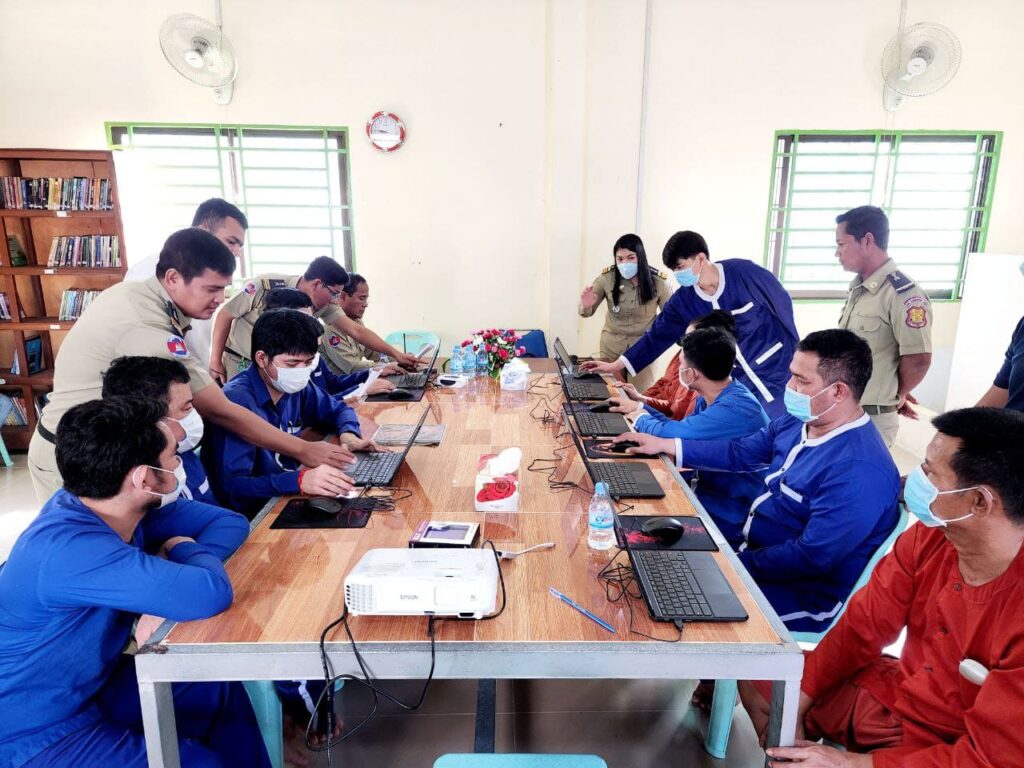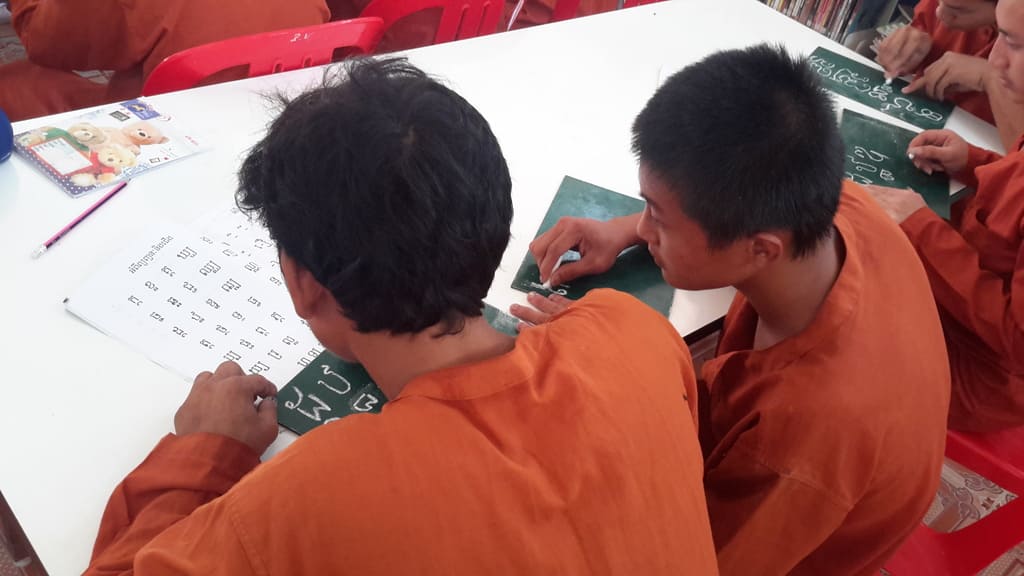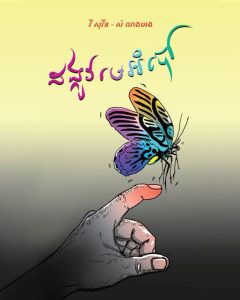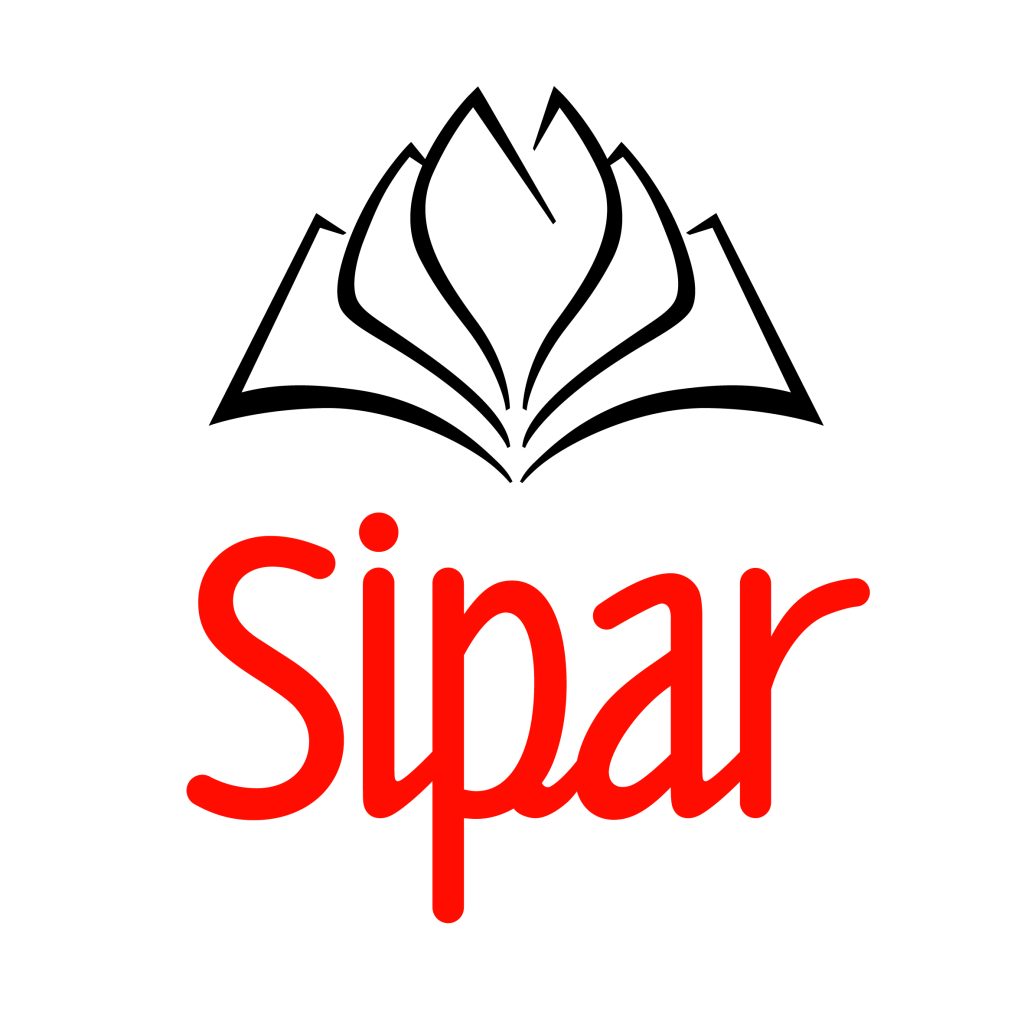
The prison education program was launched in 2012 thanks to co-funding from the European Union and the AFD, in collaboration with the General Department of Prisons (DGP) within Cambodia's Ministry of the Interior. The project then developed over nine years with the support of the AFD, then the Pierre Bellon Foundation. It has set up computerized libraries in Cambodia's 28 prisons. It also offers education, literacy, training and reintegration programs in partnership with the Ministry of Education, Provincial Vocational Training Centers and two NGO partners. Since 2022, the 28 libraries have been managed autonomously by the prisons themselves, with the support of the GDP.
This program contributes to the education and preparation for socio-professional reintegration of nearly 50,000 prisoners. L’objectif est d’améliorer le bien-être des détenus et réduire la violence et la récidive, plus particulièrement des jeunes de 18 à 25 ans, qui représentent 60% de la population carcérale.

context
The majority of Cambodia's 50,000 prisoners come from poor, marginalized backgrounds. Most of them have no professional qualifications, and 30-40% have no basic knowledge of reading, writing or arithmetic.
Institutions such as the Ministry of Education and the Ministry of Labor offer a growing number of educational services and vocational training courses, but opportunities for the educational development and social reintegration of prisoners with a view to vocational preparation remain inadequate.
Sipar and its partners are convinced of the positive impact of libraries in prison. They wanted to go a step further by equipping them with a digital laboratory of five to ten computers, whose downloaded content can be consulted by anyone, offline.
These interactive digital tools open up new opportunities for inmates: continue their secondary education, acquire technical skills (agriculture, cooking, mechanics...), improve their command of a foreign language (English, Chinese, Thai...), strengthen their practical life skills (managing finances, preparing for employment, running a micro-enterprise...) or develop their general knowledge and basic computer skills.
This program represents a major innovation in the Cambodian context. The rapid advances in the digital field in the country are such that its mastery is becoming more and more necessary, especially for young people who have broken socialization.
Reading is very important, especially for our reintegration into the community. This will help us find a good job.
Detainee from Kindal prison, 24
A pilot project to train detainees
As part of the national lifelong learning policy, a two-and-a-half year pilot project (July 2023 - December 2025) is being set up in seven prisons. It is financed by the French Development Innovation Fund (FID). This program is aimed at inmates with less than one year remaining on their sentence. They can access off-line computer-based courses according to their needs and choices. Each validated course leads to a certificate issued by partner institutions and Sipar.
Training courses include:
- Remedial courses at secondary school level (Beep program, developed by UNESCO and the French Ministry of Education).
- An initiation to digital technology.
- English courses for beginners (three levels).
- Preparation for socio-professional reintegration, with training in seven soft skills.
28
equipped with a digital lab
10 000
readers per month
42 000
beneficiaries
300
inmates in 7 pilot prisons have access to offline courses

Published at Sipar publishing house in August 2020, the autobiographical novel written by a former inmate of Preah Vihear prison lifts the veil on daily life in detention, tracing the author's tumultuous journey.
The novel is available in the libraries of the 28 prisons.
